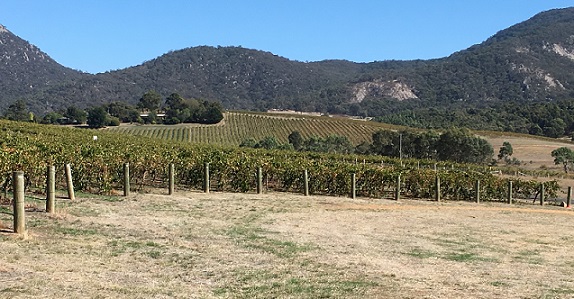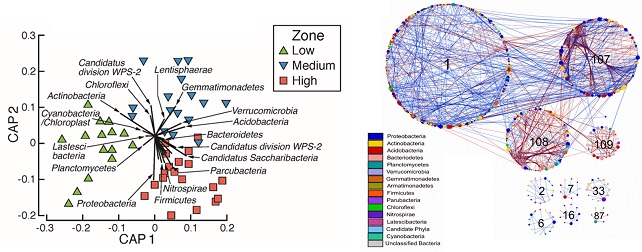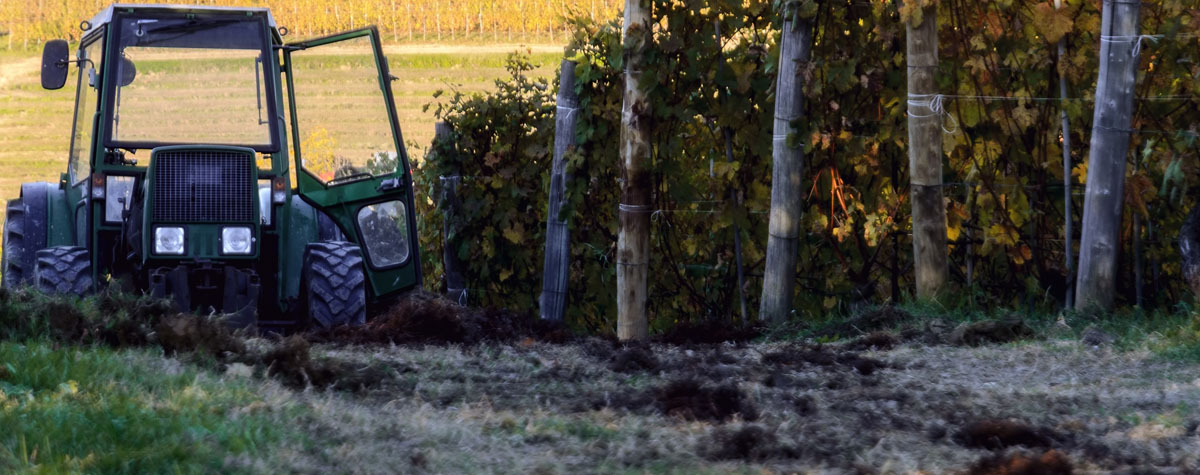‘Bacteria need to be taken into account when it comes to defining terroir’Winemakers are familiar with the role lactic acid bacteria plays in malolactic conversion and its effect on wine. But what about bacteria on grapes and bacteria in the soil? What’s the effect of bacteria in vineyard soils on wine composition?
It’s a new area of research. This issue of Canopy, I want to bring your attention to two of the most significant pieces of wine industry research from the last few years on the previously hidden roles of vineyard bacteria on wine composition.
Firstly, the paper that opened my eyes to a new dimension in wine production. In a study on Cannonau in Sardinia, Mezzasalma V 2017 prospected the populations of bacteria and fungi on berries and in musts. Here are the key findings:
- Berries from biodynamic vineyards were rich in bacteria associated with manures, that is Bacillales;
- More than 50% of the bacteria groups reach the must stage;
- Some bacteria groups persisted through fermentation.
‘This adds weight to the caution that viticulturists should take in applying green manures to vineyards, particularly within the growing season’In addition to unveiling the potential for bacteria on grapes to transfer into musts and influence wine composition, Mezzasalma’s study is the first and only that I am aware of that has made a connection between manures and bacteria on grapes. This adds weight to the caution that viticulturists should take in applying green manures to vineyards, particularly within the growing season.
In a study on Shiraz in Australia, Gupta VVSR (2019) broke new ground in research into the role of bacteria. The study is a follow-up to previous significant studies revealing:
- The role of Rotundone as a key compound in pepper aromas in wine, Siebert T E (2008);
- The spatial distribution of Rotundone – Scarlett N J (2014) and Bramley RGV (2017) in the same vineyard.

Photo of the trial site at Mount Langi Ghiran, Victoria, Australia. Photo courtesy of Vadakattu Gupta.
'Which aromas are potentially influenced directly by soil bacteria?'The significance of this new study is the evidence that spatial differences in bacterial diversity in vineyard soils may be having a direct influence over aroma compounds, independent of other factors, such as soil type. The findings make you wonder which other aromas are potentially influenced directly by soil bacteria and the extension of this idea leads to the possibility that eventually we can inoculate soils to achieve a required aroma profile.

Image and text courtesy of Vadakattu Gupta. The graph on the left illustrates the presence of distinct bacterial community composition in soils from the different Rotundone zones. Results from the bacterial co-occurrence network graph (on the right) indicate a highly-structured community in the high Rotundone soils.
The next steps? Vadakattu says: “Our objective is to extend the descriptive genomics based findings about the soil microbiome to the aboveground plant-microbiome, in particular functional microbiome and wine characteristics (terroir/Rotundone concentrations).”
Irrespective of how direct or indirect the effect of bacteria in vineyards is on wine composition, it is clear that bacteria need to be taken into account when it comes to defining terroir and the most progressive viticulturists would do well to start looking more closely at potential links between bacteria in their soils and wine composition.
James Wright is an international viticulture and management consultant and author of www.vitisynth.com and the newsletter VitiSynthesis.











.png)









